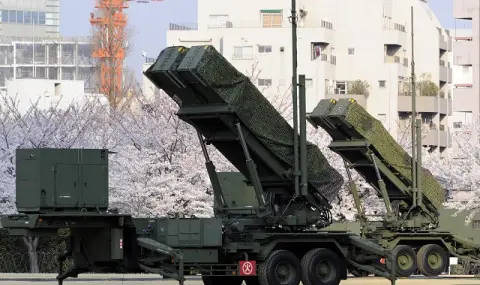"Great relief in Ukraine after the vote on the aid plan from the US", writes the French in. "Croix".
Although Kiev welcomed the vote on the US aid plan for Ukraine, the several-month delay allowed the Russian army to advance, the publication said.
"The US aid will not be of immediate benefit to Kiev,", warns the French in. "West France", citing the American Institute for the Study of War. "Although the news of the American vote was welcomed by all the main Ukrainian leaders, as well as the European Union and NATO, we should not expect an immediate change in the balance of power in the hostilities,", the newspaper emphasizes.
Ukrainian President Volodymyr Zelensky described the vote in the House of Representatives as "important assistance that will be felt by our soldiers on the front lines," but the institute warned that the "logistics of transporting American equipment to the front lines in Ukraine likely will mean that it will be several weeks before the new US aid begins to affect the situation on the front line.
Therefore, the situation "is likely to continue to deteriorate during that time, especially if Russian forces increase their offensives to take advantage of the limited window before new US aid arrives,", the think tank said, predicting at least another month and a half battles in which the Russian forces will have an advantage.
"Russian forces are likely to step up current offensive operations and missile and drone strikes in the coming weeks," the institute predicted. By June 2024, however, "Ukraine is likely to be in a significantly better operational position".
The package of military aid from the United States could thwart Russia's summer offensive, writes the British "Telegraph" newspaper. Although US aid will allow Ukraine to defend key territories, experts warn that it is not enough to win the war.
Commentators compared the adoption of the new US aid package to the US entering World War II, Ukrainian soldiers cheered and Volodymyr Zelensky praised the US for standing up to "Russian evil". However, the aid package was dangerously late, the "Telegraph" emphasizes, pointing out that Kiev has already lost valuable territories and the lives of soldiers.
"This buys Ukraine time until after the US elections in November, maybe a year. It allows them to defend themselves, but the underlying problem has not gone away. Ukraine is being forced to skimp on weapons," according to John Forman, a former British military attaché in Moscow and Kiev, quoted by the conservative publication.
In half a year since Republicans in Congress first delayed the release of aid, the momentum of the war has shifted decisively to Russia's side, notes the "Telegraph". Moscow took advantage of the delay to deplete Ukraine's air defense arsenal and subject vital energy infrastructure and major cities to near-impunity fire.
Ukrainian military strategists have identified critical sections of the frontline that urgently need reinforcement, mostly with artillery shells. Among them are the central section around the town of Chasov Yar, which acts as a buffer for the Ukrainian "fortress cities" Slavyansk and Kramatorsk, and the northern section around Kupyansk, which protects the road to Kharkiv. Kharkiv itself came under fire and could be the focus of a new Russian offensive, warns the British edition.
Franz-Stefan Gaddy, an associate fellow at the International Institute for Strategic Studies, said the aid gives Ukraine a breather to try to solve the even bigger problem of manning its army. Europe is also getting time to ramp up production of ammunition and launch systems, he stressed. "In late autumn or winter we should see a noticeable increase in European industrial production."
The most vulnerable point for the Ukrainian military effort, however, is that the political tensions in Washington that delayed the aid package have not gone away. If Donald Trump wins the presidential election in November and doesn't change his stance on the war, this package could be the last.
If the influence of the wing of the Republican Party, guided by the maxim ``America First,'' stops growing, it could prove to be a tipping point, as long as Kiev's forces hold out, the ``Telegraph'' emphasizes, adding cites Michael Clarke, professor of military science at King's College London.
As a ranking member of Congress, Mike Johnson generally opposed American aid to Kiev. Intelligence, political and personal considerations, however, have made the Speaker of the House of Representatives a key force in pushing the most recent aid package through the lower house of Congress, notes the "New York Times".
